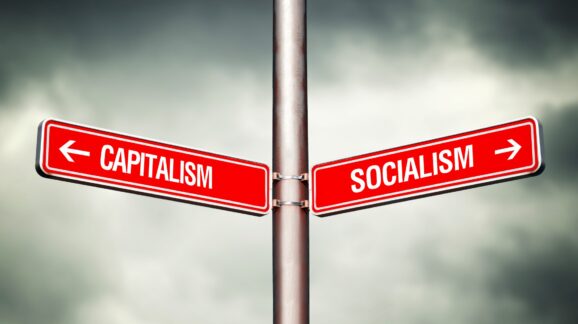The cold wind of socialism

Photo Credit: Getty
In an episode of the Netflix series The Crown, an aging Winston Churchill refers to the Labour Party’s return to power as the “cold wind of socialism.” As evidenced by State Assemblyman and self-proclaimed democratic socialist Zohran Mamdani’s victory in the New York Democratic mayoral primary, that wind is now blowing in the United States. It should send a chill down your spine.
What do democratic socialists stand for? The Democratic Socialists of America say that they are socialists because they “reject an economic order based on private profit” and have a vision of a humane social order based on “popular control” of resources and production, economic planning, and equitable distribution. Popular control of course means government control of resources and production and is coupled with economic planning orchestrated by government officials. Equitable distribution is rooted in Karl Marx’s famous slogan, “From each according to his ability, to each according to his need.”
Mamdani embraces this vision, calling for measures such as a rent freeze and city-owned grocery stores. As my colleague Ryan Hwang points out, history shows that these proposals will make the problems they are trying to solve worse, not better.
For example, Mamdani’s website states that more than 2 million New Yorkers are tenants who live in “rent stabilized apartments.” In other words, apartments with rent control. Rent control began in New York in 1943. After so many years and so many New Yorkers living in rent-controlled apartments, shouldn’t any problems with housing affordability and availability already be solved?
Mamdani is a classic socialist in that his “solutions” are merely doubling down on the types of government-centered policies that have repeatedly been proven to fail. In the socialist mind, if the current amount of government control isn’t working, the answer is to increase the amount of government control. To do otherwise would contradict the premise that a government-directed economy is superior to the free market.
We can have a good idea how this will work out because we’ve seen it before. American socialists have long adored Scandinavian countries as models. But Johan Norberg documented how Sweden’s experiment with socialism from 1970 to 1990 ended disastrously. Companies such as IKEA and Tetra Pak and many entrepreneurs left Sweden. Not a single net job was created in the private sector. Sweden only experienced better economic conditions when it moved away from socialism and embraced market reforms.
This cold wind of socialism will make New Yorkers less well off. But the Democratic Socialists of America do have a merch store, so they are willing to embrace profit when it benefits them. Unfortunately, that’s not a sign of a more comfortable breeze.